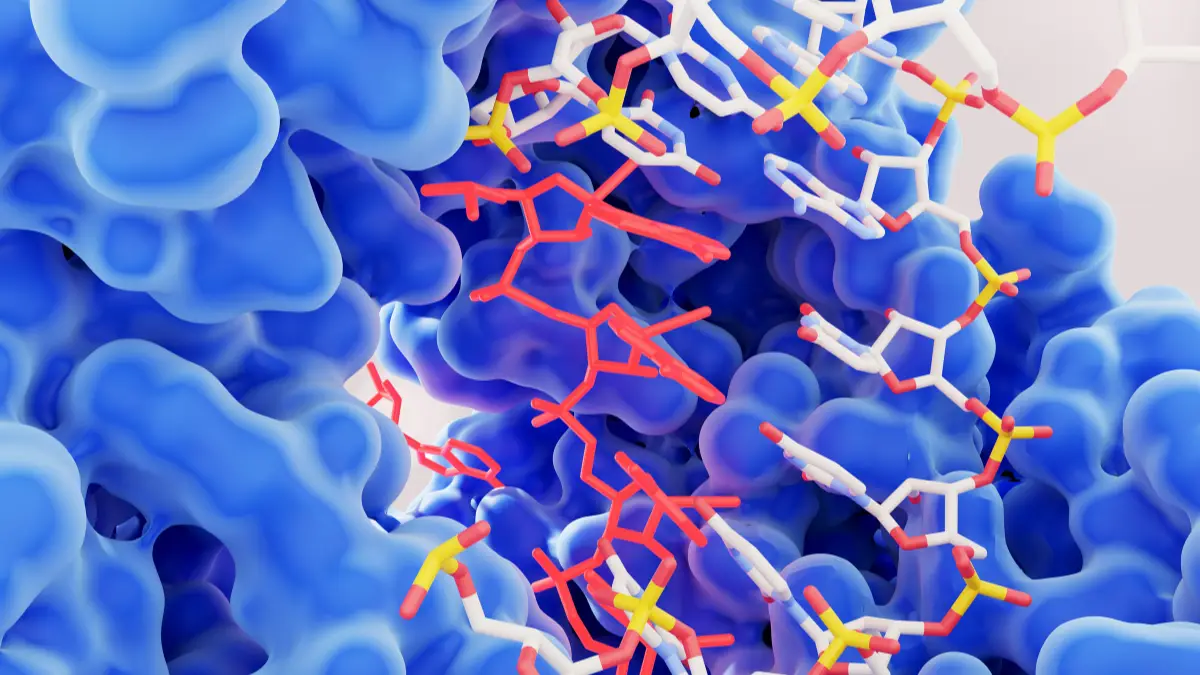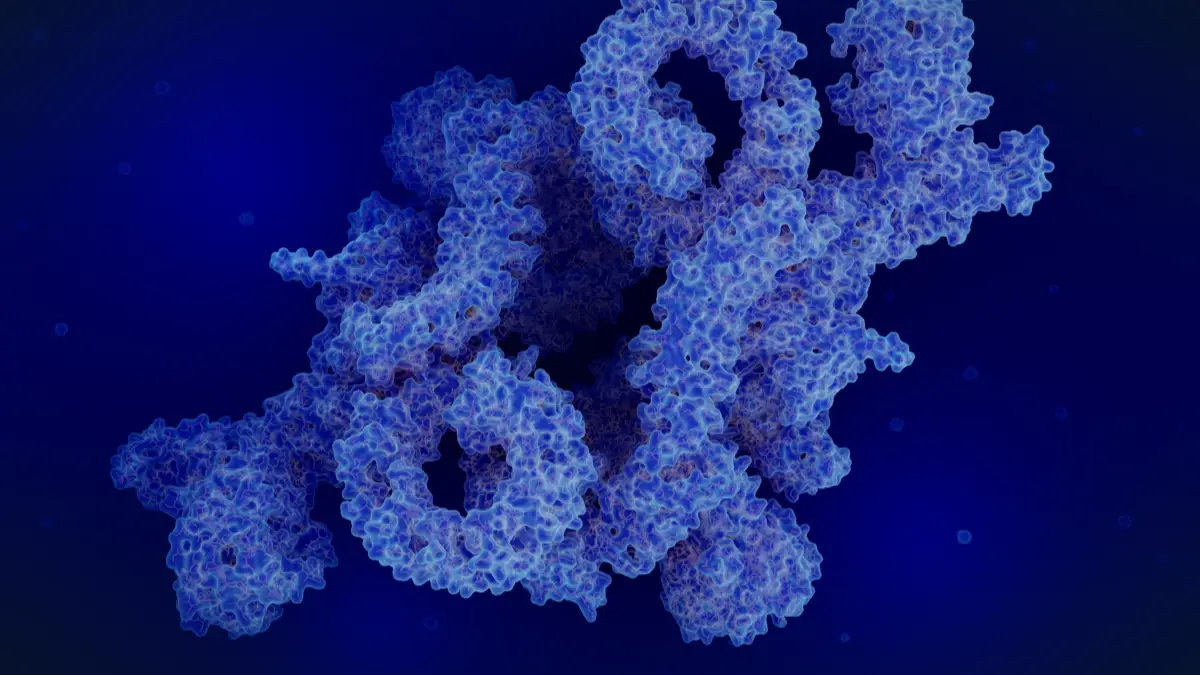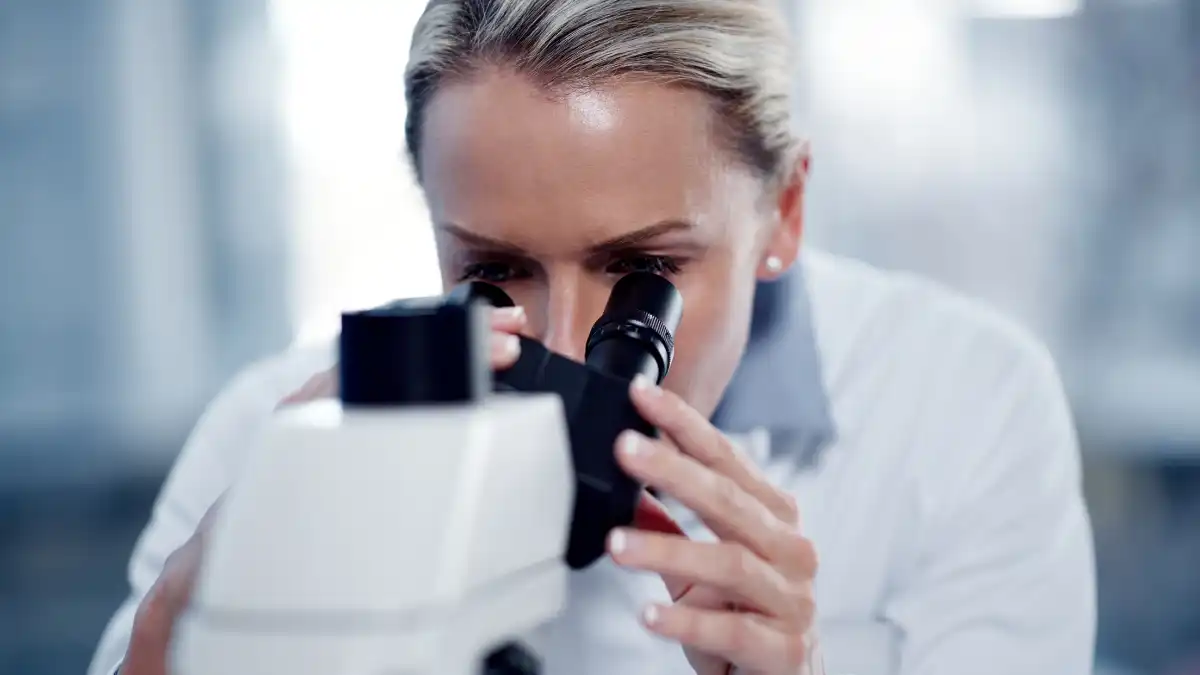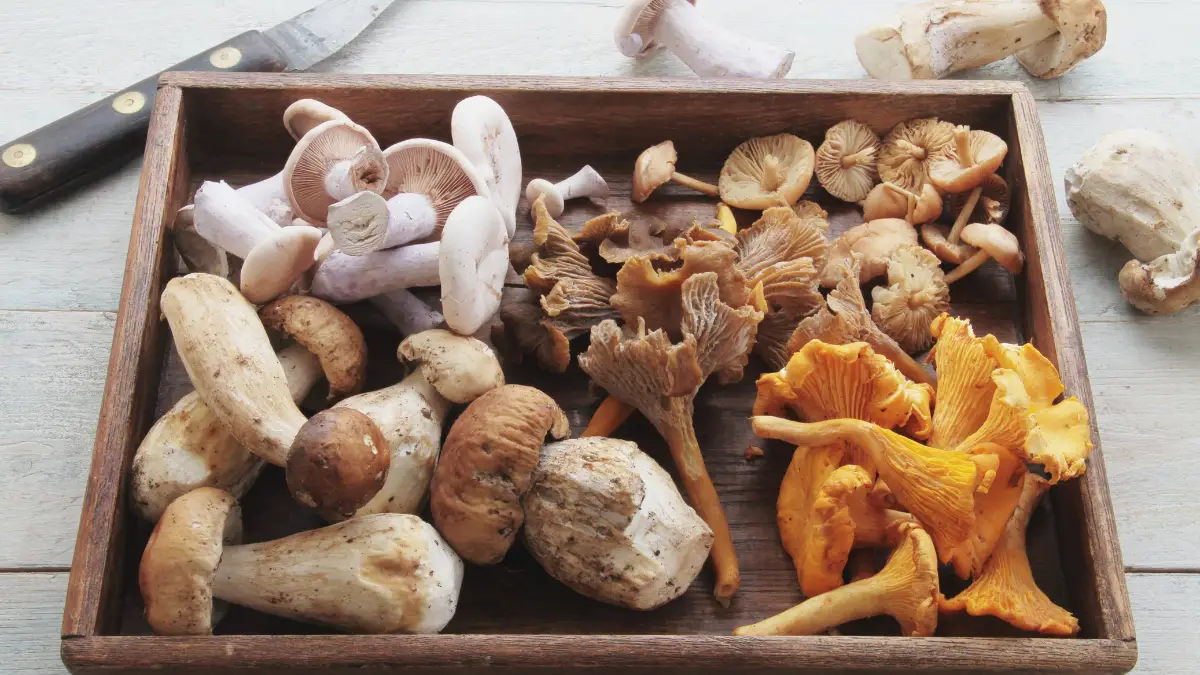The anti-aging industry sells expensive dreams in the form of IV drips and high-tech gadgets. It’s a game that can cost thousands, making you think that true longevity is a luxury you can’t afford. But the secret to rewinding your cellular clock isn’t locked away in some exclusive clinic.
It’s waiting for you in the produce aisle, and it costs less than a cup of coffee. A landmark 2025 study has the world’s best longevity researchers suddenly focused on the humble mushroom.
This isn’t wellness hype; it’s hard science pointing to a powerful molecule called spermidine. This compound kickstarts your body’s deep-cleaning process and is changing everything we thought we knew about aging well.
The Longevity Secret in Aisle Six

Trying to live longer often costs a lot of money. People use fancy tech like cryotherapy chambers and IV drips. They also buy expensive supplements that can cost hundreds or thousands of dollars a month.
The race to live healthier for longer is full of high-tech drugs and treatments that most people can’t afford.
But what if one of the best tools for a longer life wasn’t in a lab but in the grocery store? What if a key to healthy aging cost as little as a cup of coffee? In a field that is usually complex and expensive, new proof is pointing to a simple, cheap food: the mushroom.
A big 2025 study is making top researchers take a closer look.
This isn’t just talk from a health blog. The proof comes from cell science, big studies on people, and what the top experts do themselves. The food causing all this buzz is a kitchen staple.
You can buy an 8-ounce pack of fresh white or cremini mushrooms at Walmart for about $2 to $3. This simple grocery item is getting attention for a powerful molecule it contains called spermidine.
This compound helps your cells renew themselves. And it’s changing how we think about aging well.
Spermidine: The “Magic” Molecule Fueling the Hype

The hero of this story is spermidine. It has a funny name because it was first found in semen. Spermidine is a polyamine, a small molecule your cells need to grow and work. It’s not a rare thing. It’s found everywhere in nature, and your body makes it.
But as you get older, your body makes less spermidine. This leaves your cells open to damage from aging.
Scientists are interested in spermidine because it helps your cells in many ways. It’s not a magic fix for one problem. Instead, it supports many parts of healthy aging. Studies show that more spermidine can lead to good things.
It can fight inflammation, protect your cells, and help your heart and mitochondria work better. It might even protect your brain and help prevent some cancers.
One of the most interesting things about spermidine is that it acts like you’re eating less. This is called a “caloric restriction mimetic.” Eating fewer calories is one of the best-proven ways to live longer in many animals.
It works by turning on a cell process called autophagy. Top researcher Dr. David Sinclair from Harvard says spermidine starts this same powerful cleaning process.
This means you might get the cell-renewing benefits of fasting without actually having to fast. This makes spermidine more than just a nutrient. It’s a molecule that uses a proven path to a longer life.
The Science of Self-Renewal: A Deep Dive into Autophagy

To get why spermidine is a big deal, you first need to know about autophagy. Autophagy means “self-eating” in Greek. It’s your body’s cleanup and recycling system for your cells.
It’s a careful process. A cell finds its own damaged or old parts, like bad proteins or worn-out mitochondria. It wraps them up and sends them to be broken down. The cell can then reuse the basic parts to build new things or for energy.
This cleanup job is key for healthy cells. As you age, it slows down. This lets “cell junk” build up, which makes you age faster.
Cell processes like autophagy have “on” and “off” switches. One of the main switches involves adding or removing small chemical tags called acetyl groups from proteins. Adding these tags is called acetylation. Removing them is called deacetylation.
The balance between the enzymes that add the tags (histone acetyltransferases, or HATs) and the enzymes that remove them (histone deacetylases, or HDACs) is very important.
This is where spermidine comes in. New research shows it starts autophagy by blocking a key HAT enzyme called EP300.
By stopping this “tag-adding” enzyme, spermidine pushes the cell to have fewer acetyl tags. This sends a strong signal to turn on the autophagy cleanup crew.
This is important because it’s different from how another compound, resveratrol, works. Resveratrol, from red wine, turns on an enzyme called SIRT1 that removes the tags.
Studies clearly show that spermidine starts autophagy without needing SIRT1 at all. This means nature has two different ways to control this cell cleanup switch. Think of it this way: spermidine takes the foot off the brake, while resveratrol hits the gas.
This is more than just a science fact. It means they could work well together. One study found that at low doses, neither compound worked alone. But together, they started the autophagy process. This means you could use different foods to get a stronger cell cleanup effect.
The Gurus of Aging: What Sinclair and Attia Are Saying

It’s not just scientists in labs talking about spermidine. The biggest names in longevity research are paying attention. They are using it themselves and talking about it.
David Sinclair, Ph.D., is a professor of genetics at Harvard Medical School and a huge name in aging research. He is known for his work on sirtuins and NAD+. He has said that he takes 1-2 mg of spermidine every day.
His reason is clear. He takes it to get the same cell benefits as fasting. He thinks this is a key to a longer, healthier life and maybe even reversing some parts of aging.
Peter Attia, M.D., is a doctor trained at Stanford and Johns Hopkins. He looks at the practical side of living longer. His popular podcast, “The Peter Attia Drive,” gives a deep look at ways to live a longer, healthier life.
His main supplements are things like omega-3s and magnesium. But he often talks about new and interesting options. Spermidine is always on his list of compounds to watch, along with others like rapamycin, alpha-ketoglutarate, and urolithin A.
Sinclair using it and Attia watching it shows how new science gets accepted. Sinclair, the scientist, is willing to try things that have strong lab data. Attia, the doctor, looks at all the proof. He is saying spermidine is important enough to watch closely.
But he wants to see more tests on people before he tells everyone to take it. The fact that both of these top experts are focused on spermidine shows how important it is becoming.
The 2025 Breakthrough: The Finding That Changed Everything

Scientists have been studying spermidine for years. But the big reason for the new focus on mushrooms came in July 2025.
A major study from Emory University and Baylor College of Medicine, published in the journal npj Aging, completely changed what scientists knew about how mushroom compounds affect the main signs of aging.
The study was about psilocybin, the compound in “magic mushrooms,” not spermidine. The researchers looked at how its active form, psilocin, affected aging in human cells and in animals. The results were amazing.
First, in lab tests on human cells, psilocin made skin and lung cells live 50% to 57% longer. The cells kept dividing and aged much more slowly. Then, they did the first long-term study of its kind on old mice.
The mice were about 60-65 in human years. The results were huge. After ten months, 80% of the mice given psilocybin were still alive. Only 50% of the mice that didn’t get it survived.
That’s a 30% jump in survival. The treated mice also looked healthier, with less gray hair and more new hair.
The study also looked at how it worked. Psilocybin was found to fight oxidative stress, help cells repair DNA, and protect telomeres. Telomeres are the caps on the ends of your chromosomes that get shorter as you age.
Lead researcher Dr. Louise Hecker said the results show “psilocybin has potent effects on the entire body,” and opens a “new frontier” for how these compounds can affect aging.
This study is important for more than just one compound. It shows that the fungi family is a great place to find molecules that fight aging. Mushrooms have spermidine, which helps with cell cleanup.
They also have psilocybin, which protects telomeres. This has started a lot of new research. Scientists are now asking: what other amazing things are hiding in mushrooms?
The Human Connection: Does It Actually Make Us Live Longer?

Lab and animal studies are great. But the real question is, does eating more spermidine help people live longer, healthier lives? A lot of big studies on people suggest it does, but the answer isn’t simple.
The best proof that it works comes from big studies of people in Western countries. The Bruneck Study in Italy followed 829 adults for 20 years.
It found that people who ate the most spermidine had a 60% lower chance of dying from any cause. The researchers said this was like being almost six years younger. The U.S. NHANES study, with over 23,000 people, found similar results.
Those who ate the most spermidine had a 30% lower risk of death. And a huge study of over 184,000 people in the UK Biobank found that a medium intake of polyamines like spermidine was linked to a lower risk of death from any cause and from heart disease.
But it’s important to look at all the facts. A 2024 study in Japan showed something different.
After following over 29,000 Japanese adults for 16 years, the researchers said their results “did not provide support for the notion that dietary spermidine has beneficial effects on mortality”.
Even more confusing, the study hinted that women who ate the most spermidine had a higher risk of dying from cancer, though the result wasn’t certain.
This difference doesn’t mean the good results are wrong. It just shows something very important in nutrition: context matters. The effect of one nutrient depends on your whole diet, your genes, and your lifestyle.
The traditional Japanese diet is already very high in foods with spermidine, like soybeans and miso. It’s possible that if you already eat a lot of spermidine, adding more doesn’t help.
In Western countries, where people generally eat less, adding more spermidine-rich foods could have a bigger, positive effect. This could mean the link between spermidine and health is like a “U” shape. Too little is bad, and maybe too much is also not great. The right amount depends on what you already eat.
Your Longevity Toolkit: Putting Mushrooms on the Menu

If you want to use this science in your own life, the proof suggests you should start with food. Supplements are easy and give you a set dose. But many experts, like David Sinclair, say it’s better to get spermidine from food.
Foods have other helpful compounds, too. Adding foods high in spermidine to your diet is a simple, cheap way to help your cells stay healthy.
To make good choices, it helps to know how much spermidine is in different foods. This table can help guide you.
| Food Item | Spermidine (mg/100g) | Typical Serving | Spermidine per Serving (mg) | Notes |
| Wheat Germ | 24-35 mg | 2 Tbsp (15g) | ~4.5 mg | The undisputed champion. Easily added to yogurt, oatmeal, or smoothies. |
| Soybeans (cooked) | 17-29 mg | 1 cup (180g) | ~40 mg | Fermented soy products like natto and miso are also exceptionally high. |
| Aged Cheddar Cheese | ~20 mg | 1 oz (28g) | ~5.6 mg | The fermentation process significantly boosts polyamine content. |
| Mushrooms (Black Shimeji) | ~12 mg | 1 cup, sliced (100g) | ~12 mg | Content varies by type; shiitake (~8.9 mg/100g) and oyster are also good sources. |
| Green Peas | ~5 mg | 1 cup (160g) | ~8 mg | A surprisingly potent and accessible vegetable source. |
| Chicken Liver | ~5 mg | 3 oz (85g) | ~4.2 mg | Organ meats are among the best animal-based sources. |
| Green Pepper | ~9 mg | 1 medium pepper (120g) | ~10.8 mg | A potent source among common vegetables. |
How you cook matters. Studies show that gentle cooking with water, like boiling or steaming, is best for keeping spermidine. Hot, dry cooking like grilling or frying can lower the amount.
Adding these foods to your meals can be easy and tasty. You can do more than just sauté mushrooms. Try these ideas:
- Hearty Mushroom Stew or Ragu: Use a mix of mushrooms like shiitake and portobello to make a rich vegan sauce for pasta or polenta.
- Longevity Noodles: A fast stir-fry with long noodles, mushrooms, ginger, garlic, and soy sauce.
- Stuffed Portobello Mushrooms: Fill big portobello caps with grains, herbs, and aged cheese for a main dish.
- Creamy Mushroom Soup: A great way to use mushrooms that are a little old. Blend them into a smooth, healthy soup.
If you have a hard time eating enough of these foods, supplements are another option. Doses in studies and from experts are usually between 1 mg and 15 mg a day. This is a sure way to get a helpful amount of spermidine.
The Verdict: An Obsession Worth Having?

The science story about mushrooms and long life is getting exciting. The story is backed by a lot of proof. We know how it works in cells through autophagy. We have strong lab data from different animals.
We have studies on large groups of people. And the top experts in the field support it. The 2025 discovery about psilocybin’s effects on aging made the story even bigger. It has turned the whole mushroom family into a hot spot for aging research.
This is not a story about a single magic cure for aging. The different results from the Japan study are an important reminder.
Nutrition science is not simple, and what you eat overall is very important. Still, most of the proof points one way. The link between spermidine, autophagy, and better health is one of the most exciting findings in longevity research today.
So, the excitement isn’t just about one food. It’s about a big new discovery. The secrets to a longer, healthier life might not be found in expensive clinics or fancy tech.
They might be easier to get, cheaper, and tastier than we thought. If you want a cheap, promising, and science-backed way to improve your health, the simple mushroom deserves a spot on your plate.


